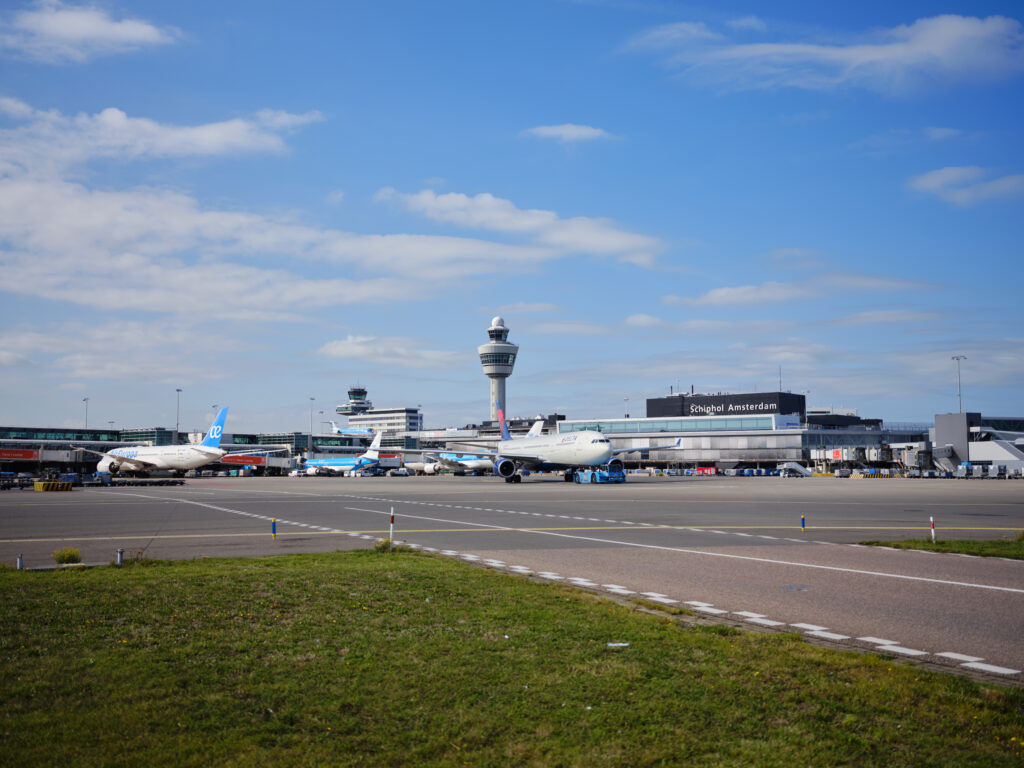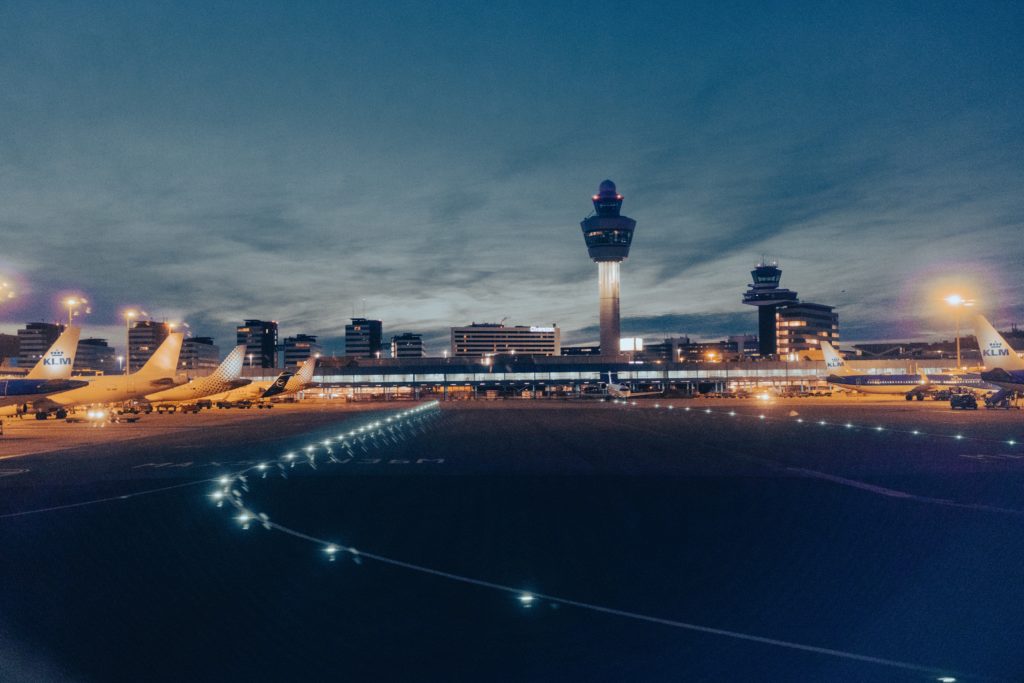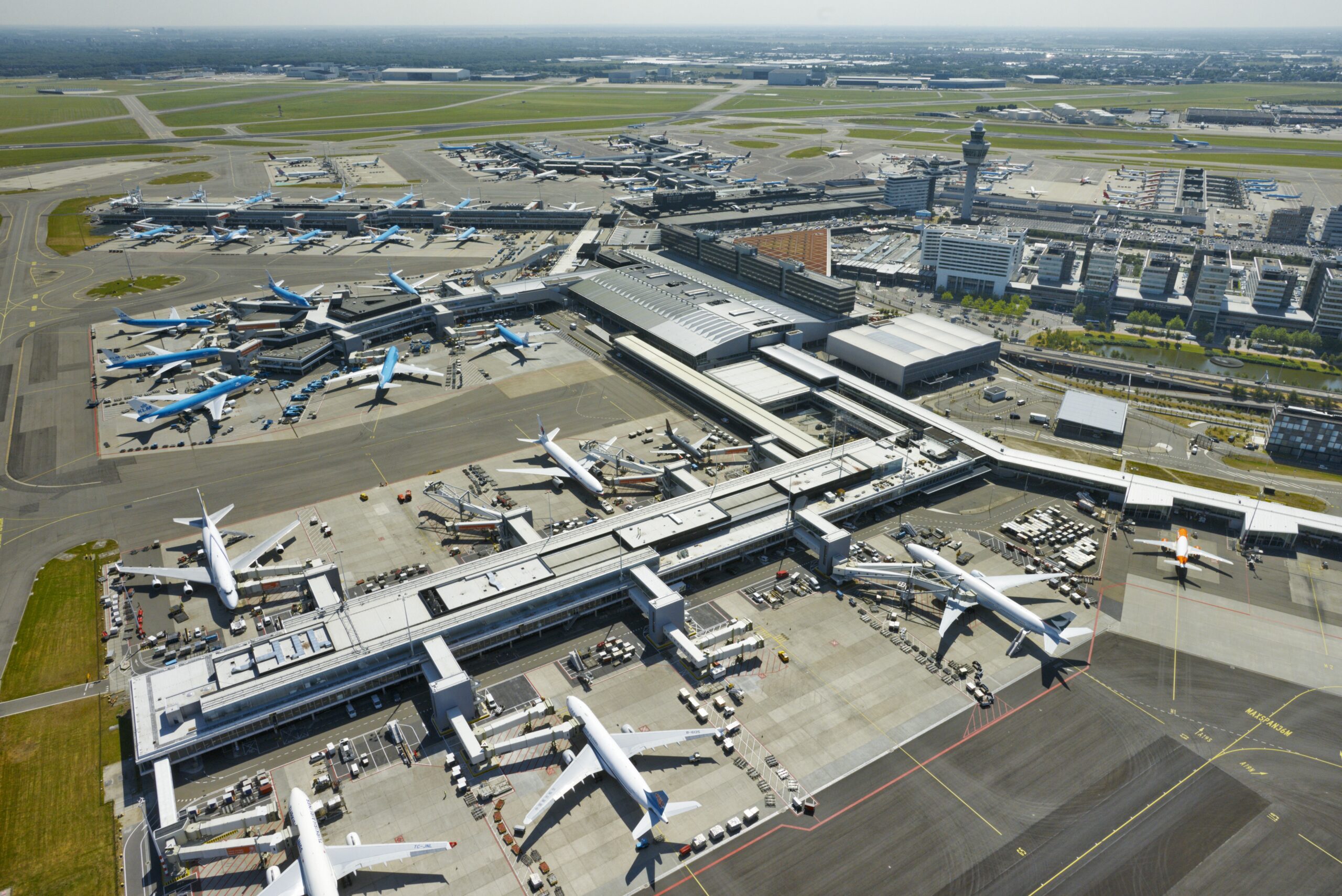A group of airlines is planning to take legal action against the Dutch government over the decision to cut the number of flights at Amsterdam Airport Schiphol (AMS) due to pollution.
The group filing the lawsuit is headed by the Dutch flag carrier KLM and comprises Delta Air Lines, easyJet, Corendon, and TUI.
The airlines have decided to take legal action against the Dutch government, who have cut the number of flights at Schiphol—the biggest airport in the Netherlands and one of the busiest in Europe—from 500,000 to just 460,000 each year.
Meanwhile, the International Air Transport Association (IATA), a trade organization representing airlines worldwide, also announced on Friday that it was planning to sue the Dutch government over the same issue.

Photo: Amsterdam-Schiphol. Courtesy of Roger Cremers
Last year, the Netherlands government decided to drastically reduce the number of flights in and out of Amsterdam Airport Schiphol, as it was claiming to seek a ‘new balance’ between the economic benefits of the airport and the environmental impact on local residents. It is hoped that reducing the number of flights would significantly reduce noise and air pollution in the local area.
However, the group of airlines is arguing that the decision to cut flights violates both European and international legislation and that its members have already invested billions of dollars to meet its own goals of reducing CO2 emissions and noise levels.
“The airlines are challenging the government’s unilateral decision to significantly cut flight movements at Schiphol, confident they can reduce noise levels and CO2 emissions while maintaining a network of destinations for the millions of passengers and tonnes of cargo they carry annually to and from Schiphol,” said the airline group in a statement.
“The airlines have already made multi-billion euros investments to meet near- and long-term goals in line with their own decarbonization trajectories as well as government policies, while the government’s justification hinges on operational restrictions with no consideration of alternative workable solutions to effect noise reduction.”

Photo: Amsterdam Schiphol Airport. Courtesy of Rita Candeias / Unsplash
In addition to harming the airlines’ operations and the economy of the Netherlands, the group also claimed that the Dutch government’s decision to reduce the number of flights at Schiphol would also be detrimental to passengers.
“In addition to negatively impacting the Dutch economy, the capacity reduction would significantly reduce travel options and connectivity for consumers,” the airline group said.
The Dutch government failed to respond directly to the airlines’ argument and their decision to take legal action. However, it did say it remained committed to reaching its flight reduction target.
“As we are currently facing a potential legal procedure, we cannot at this time respond to the arguments shared by KLM and other parties,” said the Dutch government. “We remain committed to reducing the number of aircraft movements to an expected 440,000 by November 2024.”







